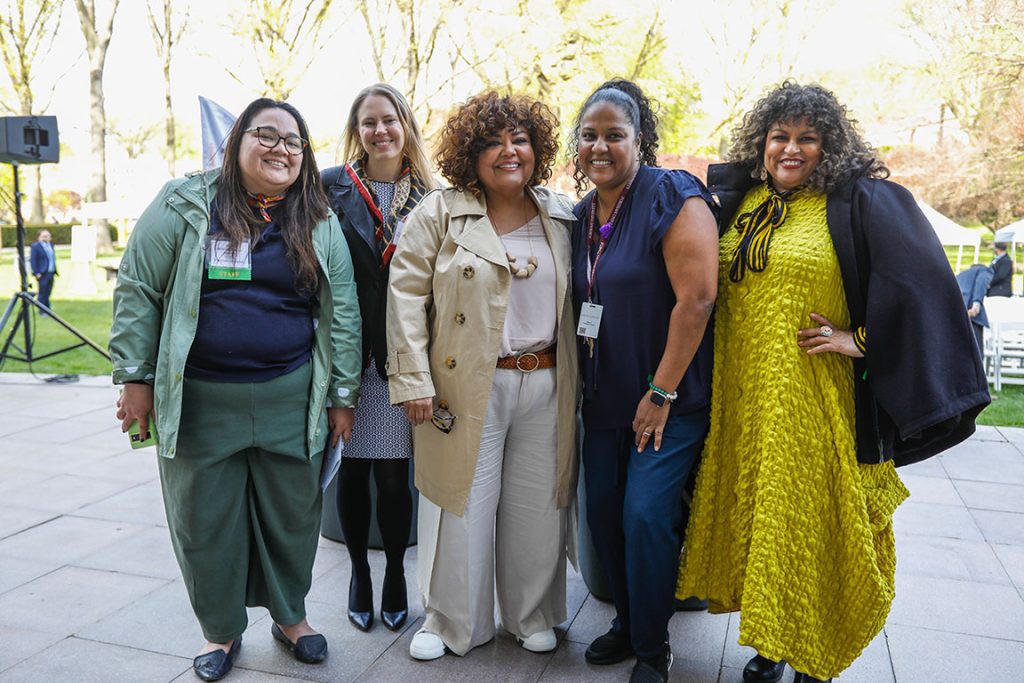Fordham marked the launch of a seven-year transformative climate change plan with an April 19 event at the Rose Hill campus that brought students, activists, government officials, and neighborhood leaders together on the Rose Hill campus.
The University also welcomed back to campus Elizabeth Yeampierre, FCRH ‘80, who laid out the challenges of achieving climate justice in a keynote address
“In the climate justice movement where I come from, we say that transition is inevitable, but justice is not,” she said.
Yeampierre, an attorney who co-chairs the national Climate Justice Alliance and is the executive director of the Brooklyn-based Latino community organization UPROSE, challenged institutions such as Fordham to shake off conventional thinking.
“Climate change is not conventional. It is unpredictable, it is violent, and it is here,” she said.
“We really need people who are thinking in a way that is unconventional and honors Mother Earth, and are building just relationships and are engaged in self-transformation, so that we are able to hold this work, which is literally the human rights of our day.”
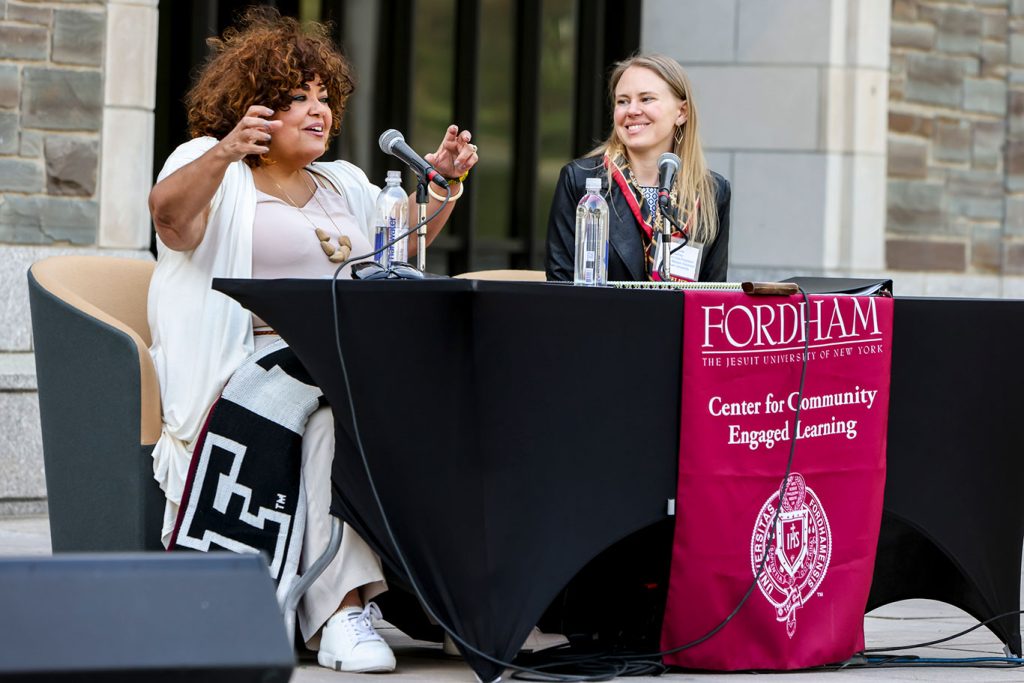
In a wide-ranging conversation with Julie Gafney, Ph.D., director of the Center for Community Engaged Learning (CCEL), on the terrace of the Walsh Family Library, Yeampierre laid out a case for a bottom-up strategy for dealing with climate change.
“We need to be able to listen to the people on the ground. The educated person knows how to take the formal education that they have, break it down, and make it accessible so that people on the ground can run with it,” she said.
As an example, she pointed to an app that UPROSE created for the 90 auto salvage yards in Sunset Park, Brooklyn, to use to access best practices for becoming climate adaptable. It includes information on chemicals that are vulnerable to extreme heat, which is expected to become a bigger problem in the future.
“Environmentalists would like to shut them down, but these are working-class people in our community, and we don’t throw away our people,” she said.
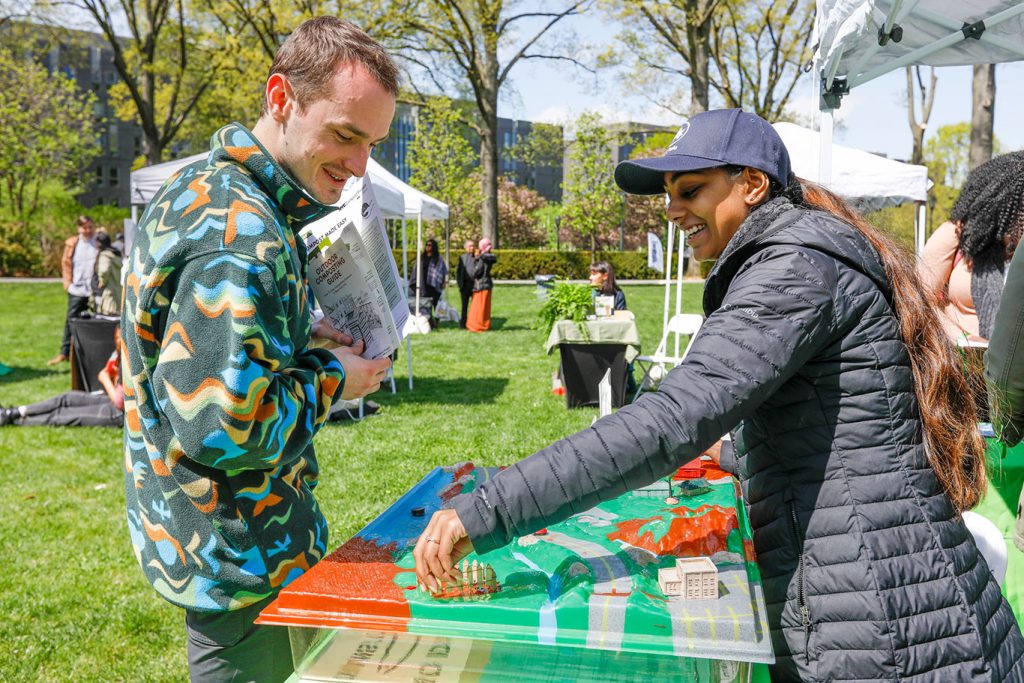
Ryan Chen, a junior environmental science major at Fordham College at Lincoln Center and a student advocacy fellow, was one of a dozen members of the audience who engaged with Yeampierre in a Q&A session. He plans to apply the lessons from her talk to his work with Sunrise Movement NYC.
“Sunrise NYC is developing local campaigns to fight for a new green deal that also addresses the needs of people in New York City,” he said.
“What Elizabeth told me is, it’s more important to support the work of other organizations that are already doing. That’s something that I really want to bring to the conversation, to make sure that we don’t co-opt other people’s work.”
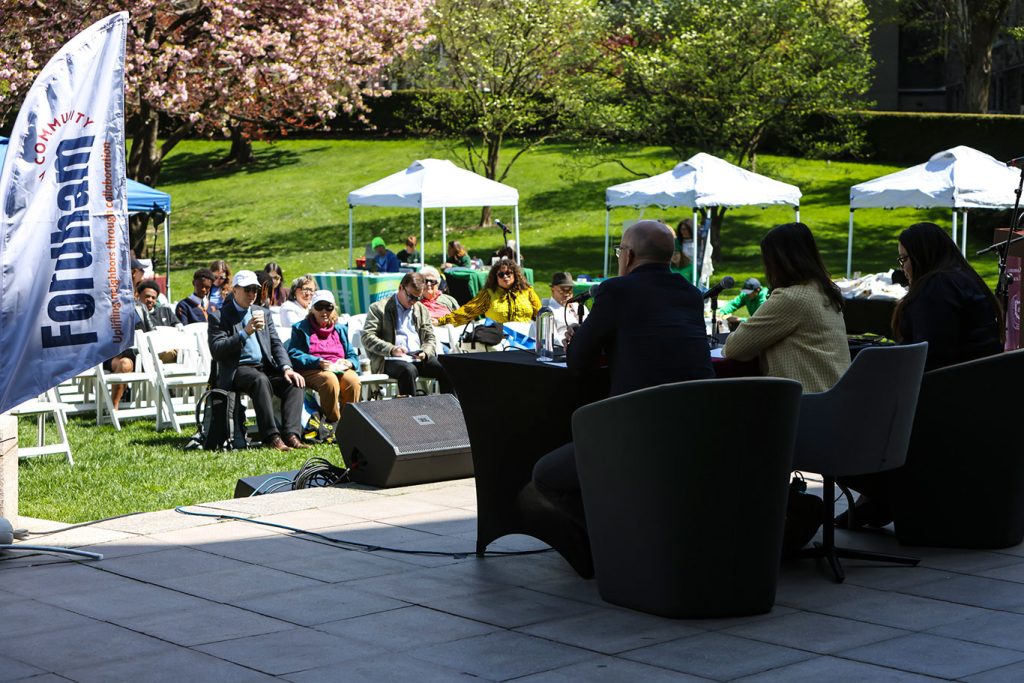
The theme of grassroots organization suffused the day’s event, which was organized by CCEL. Tents arrayed on the lawn in front of the library featured representatives from groups such as the Bronx River Alliance, Cafeteria Culture, and Friends of Pelham Bay Park, and speakers included representatives from Loving the Bronx and the New York City Parks.
A panel discussion, “Global Migration, Climate Displacement, and Racial Justice,” featured Annetta Seecharran, GSAS ’94, executive director of Chhaya CDC, an advocacy group that serves South Asian and Indo-Carribbean communities, and Andrew Rasmussen, Ph.D., professor of psychology and head of the Culture, Migration, and Community Research Group at Fordham.
Seecharran, a graduate of Fordham’s International Political and Economic Development (IPED) program, noted that her organization’s clients don’t often bring up climate change as a concern, but they do bring up health and housing problems that are exacerbated by it.
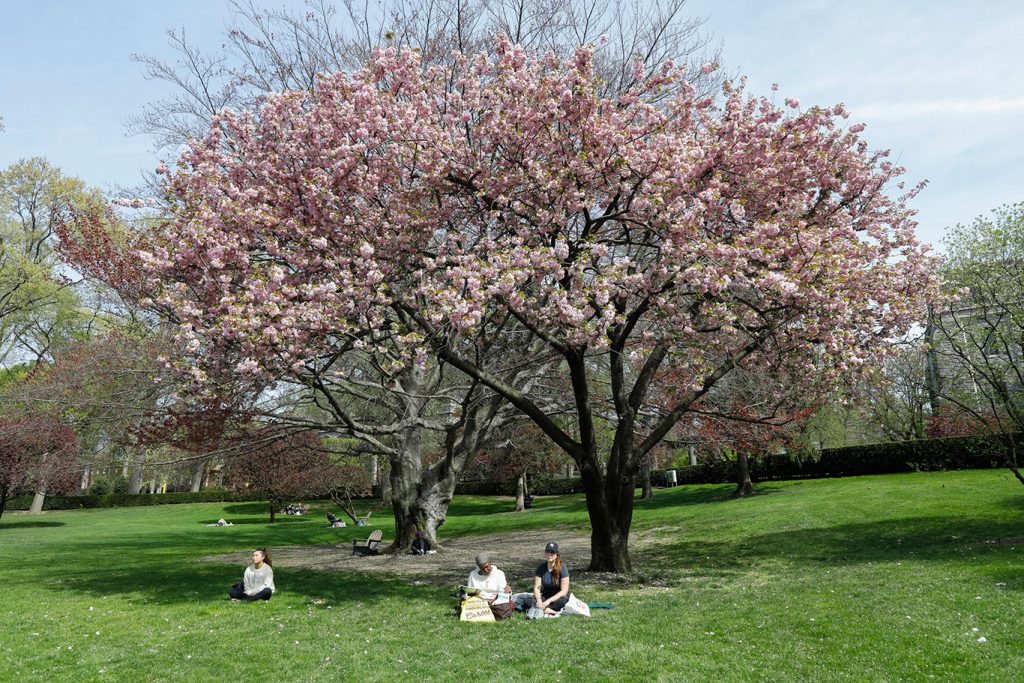
Hurricane Ida, which caused extensive flooding in New York City in 2021, and killed 11 people trapped in basement apartments, was a wake-up call that housing and weather issues can collide, even inland.
“My organization is known for working on tenant and homeowner issues. We’re not known as an environmental organization, but we can’t think of our work as separate from the environmental,” she said.
Rasmussen said community organizations need to organize and document environmental issues that are displacing them, and demand help from local officials.
“Those of you who know your Frederick Douglass remember that power concedes nothing without demand. It never has, it never will. Community organizations are the key to making those demands.”
